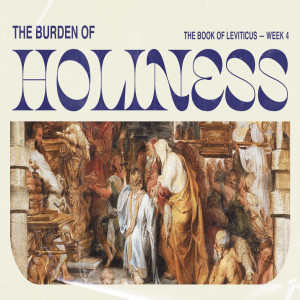
John Sullivan (FBC Trustee + Deacon) - Leviticus 11-15 (Leviticus 11:1-47; 12:1-8; Acts 10:1-22; 1 Peter 1:13-16; Mark 7:18-23)
Every year, thousands of people set out to read the Bible in its entirety; every year, a large percentage stop when they get to Leviticus, a book that lays out in embarrassing detail the limits of God's law for the Israelites.
What can we learn from this strange book? Join us as we seek to understand its place in the larger narrative of the Bible, and learn how it speaks to us today.
The Burden of Holiness: The Book of Leviticus
Week 4
I. Recap
A. “Be holy, as I am holy.”
B. Holiness is weird.
II. The “Holiness” Rules for Purity-Impurity
A. Being Clean versus Committing Sin
B. 4 Major Categories of Cleanliness Law
--- 1. Leviticus 11: Clean and Unclean Food
--- 2. Leviticus 12: Childbirth
--- 3. Leviticus 13-14: Skin Diseases & Molds
--- 4. Leviticus 15: Discharges
C. Purpose
--- 1. Symbolic practices reminding Israel of God’s holy presence
--- 2. God is the author of life. Things connected with death: bodies, skin disease, blood, bodily fluid — create symbolic impurity.
--- 3. Being “impure” is not a sin.
--- 4. But barging into God’s presence in a state of impurity is a negative act.
III. The Dietary Laws
A. Classification of Animals
--- 1. Beasts of the Field (11:3-8)
--- 2. Fishes (11:9-12)
--- 3. Birds (11:13-19)
--- 4. Insects (11:20-23)
--- 5. Four-Pawed Creatures (11:24-28)
--- 6. Swarming Things (11:29-40)
B. Why did the Dietary Laws exist?
--- 1. Every meal sets the Israelites apart from their neighbors & emphasized God’s holiness.
--- 2. Dietary reasons
C. Application in the New Testament
--- 1. “Rise Peter” (Acts 10:9-16)
--- 2. 1 Peter 1:13
--- 3. The Final Word: Mark 7:18-23
No comments yet. Be the first to say something!